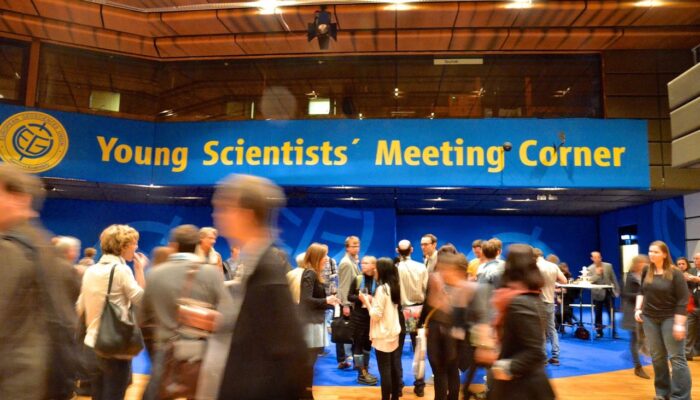
The EGU seismology division is looking to elect a new enthusiastic team of early career scientist (ECS) representatives from the beginning of May. If you are a PhD or Postdoc, why not consider taking up this role?
Why should you consider becoming an ECS representative?
Producing innovative science is the first and foremost task of any early career scientist. However, this work is embedded in the scientific community that shapes its course through conferences, workshops, and collaborations. If you are interested in contributing actively to a lively European seismology community, you should consider becoming an ECS rep.
Besides the chance to be active in the Europe’s largest geoscience organization, being an ECS rep can be a great networking and team play experience. Depending on the activities you choose to undertake, it will broaden your scientific horizon, enable you to meet established scientists, or sharpen your science communication skills. Here you can find a description of the ECS role, and in this interview with Wouter Berghuijs, the union level ECS representative, you can read more about the importance of ECS reps.
What are typical tasks of the ECS representatives?
- To be the first point of contact for ECS-related issues to EGU members and offices
- To organize a social gathering for Early Career (&other) seismologists at the General Assembly
- To coordinate and edit the seismology division blog and social media pages, currently Facebook and Twitter
Further activities in the past period included:
- A short course “Seismology for non-seismologists” at EGU GA 2017, convened by ECS rep. Koen Van Noten with support of co-conveners from the ECS team and beyond;
- A panel on “Career paths in and out of Academia” organized by ECS reps. Laura Parisi and Lucia Gualtieri. This took place during the 3rd TIDES training school in Oxford;
- Visibility surveys and posters on the activity of the ECS reps at several conferences;
Of course, each and every representative’s creative ideas are most welcome to extend this list.
Will it affect your work?
Especially PhD students may worry that the ECS role takes too much time away from their scientific work. This is one of the reasons that a team will be elected, so that work can be shared and the workload as ECS rep. becomes manageable. In past two years, we (the current ECS team) have experienced that working together also led to scientific discussions beyond each one’s own expertise, which greatly improved our individual knowledge and led to some unexpected scientific collaborations. So being a Seismology Division ECS representative even enriches your scientific work.
Who can become an ECS rep?
Anyone EGU member who is a PhD student or scientist who has received his or her highest degree (BSc, MSc, or PhD) within the past seven years (with possible extension for parental leave).
How to become an ECS rep?
The ECS reps will be elected at this year’s general assembly (8-13 April 2018). Personal presence at the conference is not a requirement, so don’t worry if you are not going to make it to Vienna. If you are interested in taking on this role, send an email with a short motivation statement and your CV to Martin Mai, the Seismology Division President: sm@egu.eu and Laura Parisi, current head of ECS team: ecs-sm[at]egu.eu. Don’t even hesitate to contact them with questions!
Edited by ECS reps Laura Ermert, Laura Parisi and Koen Van Noten.
